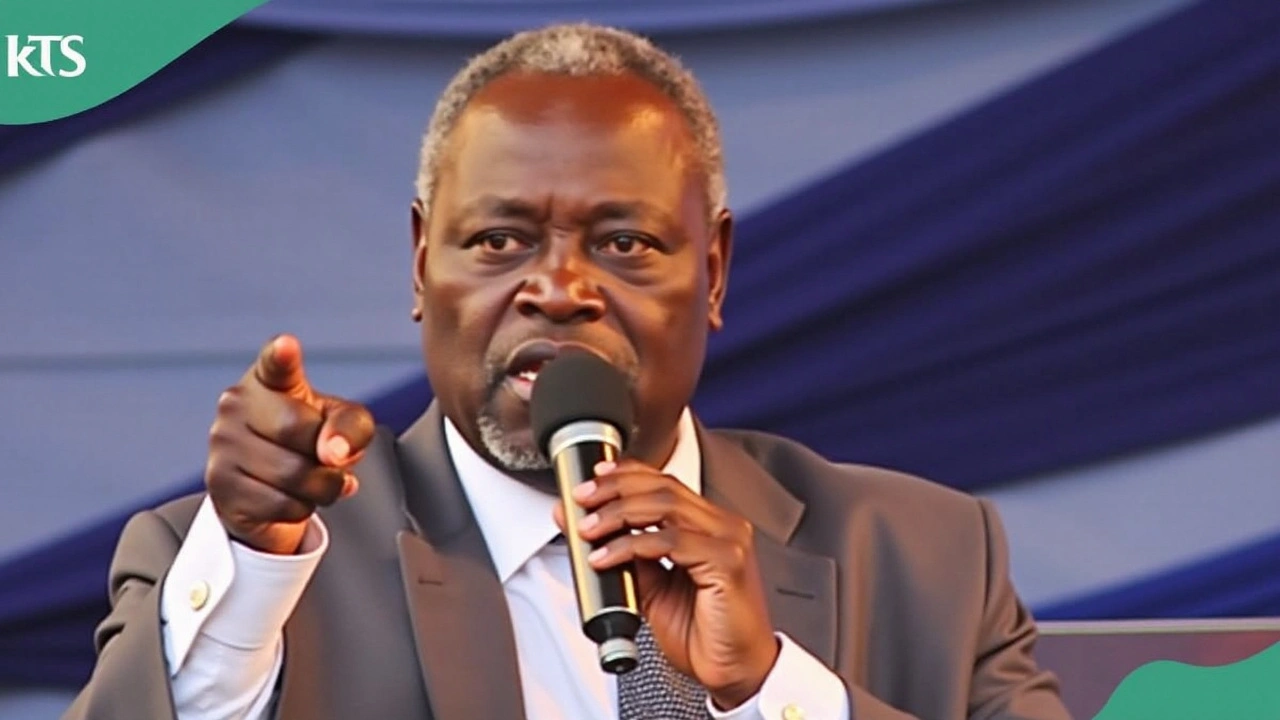Pastor Kumuyi Clarifies Decision to Include Muslim Clerics in Church Event
In a move that has sparked wide-ranging discussions, Pastor William F. Kumuyi, the General Superintendent of the Deeper Christian Life Ministry, recently opened up about his groundbreaking decision to permit Muslim clerics to use his pulpit during a church conference. The event, which took place in a stadium outside the traditional church setting, was part of a broader strategy aimed at fostering interfaith dialogue and cooperation, a cause to which Pastor Kumuyi deeply committed.
The Setting: A Crucial Distinction
Many have questioned the appropriateness of allowing non-Christian leaders to speak from a religious pulpit. Pastor Kumuyi was quick to clarify that the event was held in a stadium, not within the sacred confines of a church building. This distinction, he argued, was essential. The neutral ground of the stadium made it a more suitable venue for interfaith activities, providing a level of separation from the sanctified spaces typically reserved for Christian worship.
Promoting Unity Through Interfaith Dialogue
The primary goal of the conference was to bring together different religious leaders to speak on themes of unity, mutual respect, and cooperation among faith communities. Pastor Kumuyi stressed that the inclusion of Muslim clerics was a deliberate and thoughtful decision, aimed at creating an atmosphere of goodwill and understanding. By giving these clerics a platform, he sought to bridge the often-contentious divides between religious groups and demonstrate a model of peaceful coexistence.
Confronting Religious Tensions
Religious tension is not uncommon, particularly in regions where sectarian violence has been a historical issue. Pastor Kumuyi’s gesture was not just symbolic but a practical step towards mending these rifts. By choosing to host the event and inviting representatives from the Muslim community, he aimed to foster a better dialogue and understanding. Such engagements could serve as a blueprint for other religious leaders who desire to cultivate a peaceful and respectful relationship among various faith groups.
A Gesture of Goodwill: Building Bridges
The act of allowing Muslim clerics to address an audience from a Christian pulpit is a profound gesture of goodwill. It signals a willingness to listen and learn from each other, emphasizing shared values rather than differences. Pastor Kumuyi sees this as a fundamental step in building bridges between faith communities, crucial in a world where mistrust and misunderstanding often dominate interfaith relations.
Community Reactions: A Mixed Response
The reaction from the community has been mixed. While many laud the move as a forward-thinking and courageous step, others are more cautious, worried about the blurred lines between different religious practices. Pastor Kumuyi addressed these concerns by reiterating the importance of the venue choice and the specific intention behind the gesture. He called for patience and open-mindedness from his followers, asking them to see the greater good in fostering unity and collaboration.
Looking Forward: A Path to Peaceful Coexistence
As the world grapples with rising religious intolerance, events like these are vital. They serve as a reminder that peaceful coexistence is possible and that religious leaders have a crucial role in guiding their communities towards it. Pastor Kumuyi’s initiative, therefore, is not just an isolated event but part of a larger vision for a world where different faiths can coexist and even collaborate on common issues.
Closing Thoughts
Ultimately, Pastor Kumuyi’s decision to allow Muslim clerics to speak at the recent church conference is a pivotal moment in interfaith relations. It underscores a commitment to unity, showing that, despite our differences, there is much to be gained from listening to and understanding each other. While the approach may be met with varied opinions, the underlying message is clear: building bridges between faith communities is not only possible but necessary for a harmonious coexistence.


Suman Sourav Prasad
August 22, 2024 AT 22:58Nupur Anand
August 24, 2024 AT 06:24Vivek Pujari
August 25, 2024 AT 10:24Ajay baindara
August 26, 2024 AT 23:59mohd Fidz09
August 28, 2024 AT 10:24Rupesh Nandha
August 29, 2024 AT 09:16suraj rangankar
August 30, 2024 AT 18:26Nadeem Ahmad
September 1, 2024 AT 12:27Aravinda Arkaje
September 2, 2024 AT 21:46